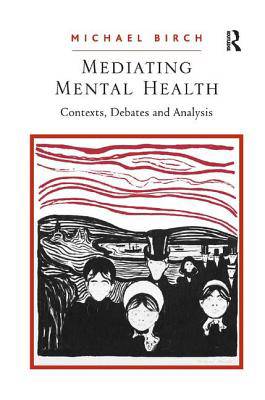
- Afhalen na 1 uur in een winkel met voorraad
- Gratis thuislevering in België vanaf € 30
- Ruim aanbod met 7 miljoen producten
- Afhalen na 1 uur in een winkel met voorraad
- Gratis thuislevering in België vanaf € 30
- Ruim aanbod met 7 miljoen producten
Zoeken
€ 195,95
+ 391 punten
Uitvoering
Omschrijving
The problem of media representations about mental health is now a global issue with health agencies expressing concern about produced stigma and its outcomes, specifically social exclusion. In many countries, the statistic of one in four people experiencing a mental health condition prevails, making it essential that more is known about how to improve media portrayals. With a globally projected increase in mental health conditions Mediating Mental Health offers a detailed critical analysis of media representations in two phases looking closely at genre form. The book looks across fictional and factual genres in film, television and radio examining media constructions of mental health identity. It also questions the opinions of journalists, mental healthcare professionals and people with conditions with regard to mediated mental health meanings. Finally, as a result of a production project, people with conditions develop new images making critical contrasts with dominant media portrayals. Thus, useful and practical recommendations for developing media practice ensue. As such, this book will appeal to mental health professionals, people with conditions, journalists, sociologists, students and scholars of media and cultural studies, practitioners in applied theatre, and anyone interested in media representations of social groups.
Specificaties
Betrokkenen
- Auteur(s):
- Uitgeverij:
Inhoud
- Aantal bladzijden:
- 302
- Taal:
- Engels
Eigenschappen
- Productcode (EAN):
- 9780754674740
- Verschijningsdatum:
- 28/12/2011
- Uitvoering:
- Hardcover
- Formaat:
- Genaaid
- Afmetingen:
- 156 mm x 234 mm
- Gewicht:
- 603 g

Alleen bij Standaard Boekhandel
+ 391 punten op je klantenkaart van Standaard Boekhandel
Beoordelingen
We publiceren alleen reviews die voldoen aan de voorwaarden voor reviews. Bekijk onze voorwaarden voor reviews.











